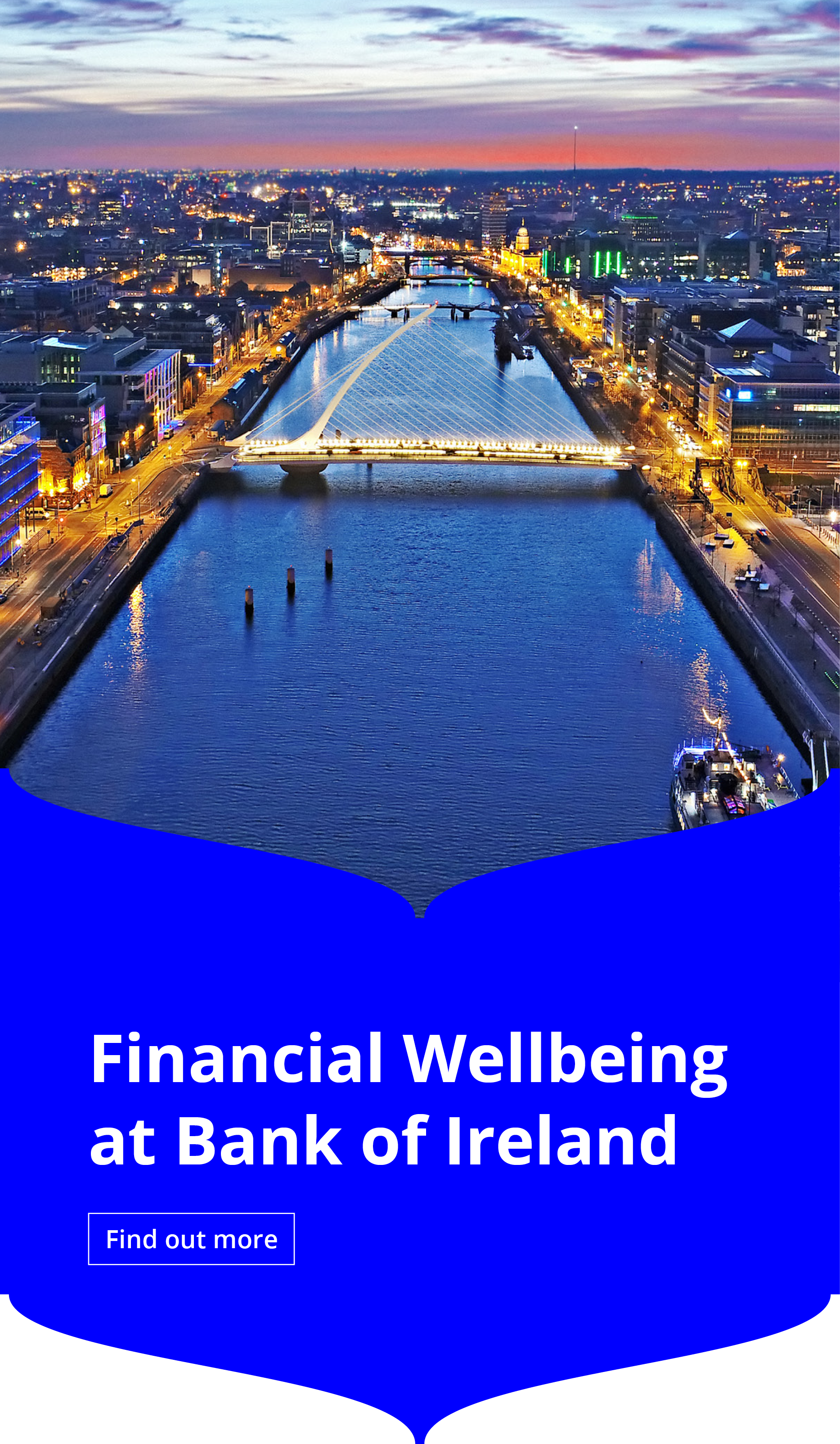We continue to be recognised as the number 1 bank for Financial Wellbeing in Ireland which puts us in a pivotal position to improve Ireland’s financial health. In simple terms, financial wellbeing is about having a good relationship with money. We are all at different stages of our journey to financial health, but we are all on the journey together.
We were one of the founding signatories of the United Nations Principles for Responsible Banking (UNPRB) commitment to Financial Health and Inclusion. In 2023, we along with a small number of banks globally, published our targets to 2030. Our targets are focused on supporting our customers’ day-to-day and life event financial resilience. In 2024, we were invited to co-lead the United Nations Environment Programme Finance Initiative (UNEP FI) and UN women’s working group on Gender Equality commitment which launched its guidance on the Gender Equality commitment for financial services in Geneva in December 2024.
You can read more on our UNPRB commitments here
Bank of Ireland’s Financial Wellbeing strategy is driven by 3 key pillars:
- Fostering financial inclusion
- Improving financial literacy and capability
- Building a more financially resilient and confident Ireland

Relevant Sustainable Development Goals






